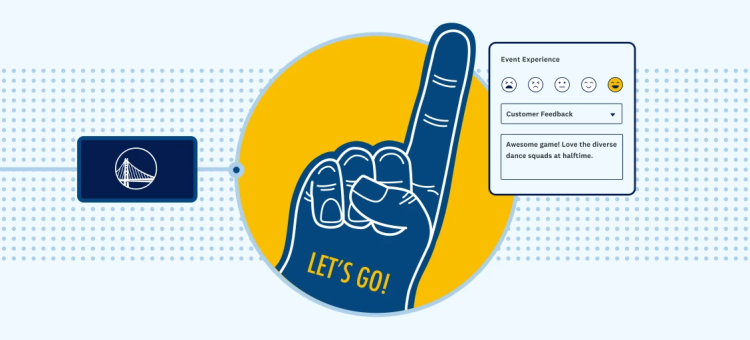We’re living in a world where artificial intelligence (AI) can do anything from writing a college essay to making a reservation at a restaurant for you. As the advances come, businesses have started to incorporate this novel technology into their customer experience.
In our recent report, “AI in the customer experience: The ups, downs, and up-and-coming opportunities,” we asked 2,201 consumers about their experiences with AI in CX, zeroing in on what they like, dislike, and would be interested in in the future.
Will AI replace customer service?
According to the data, the answer there is a resounding "no". Chatbots have their place, but they’re a far cry from what customers really want: empathy and understanding for complex issues.
- 90% of people prefer to get customer service from a human rather than a chatbot.
- The commonly used customer satisfaction metric Net Promoter Score® (NPS) is 72 points higher for human service agents than it is for customer service chatbots.
Why this delta?
- 61% of consumers say humans understand their needs better than AI.
- 53% say it provides more thorough explanations.
- 52% say human customer service agents are less likely to frustrate them than chatbots.
- 50% say humans offer more options to address their problems.
That said, some customers do still have room for chatbots in their hearts. Among the 10% who prefer working with chatbots over humans, here are the top reasons:
- Better availability (41%)
- Being able to address issues faster (37%)
- Access to more accurate information (30%)
As a final note, it’s entirely possible that attitudes will change in the future as chatbots improve and people become more accustomed to interacting with AI. Already, the younger generations have a sunnier outlook about AI than the older ones.
- Only 41% of people under 34 have negative feelings about the idea of companies using AI in CX—compared to 72% of people over 65.
Ultimately, people tend to come to customer service at times when they’re already strained and looking for empathy and urgency. Humans are simply the best suited to offer those things.
How AI improves customer experience
Customer service aside, there are many types of customer experience AI that consumers are excited about.
- 52% of consumers are interested in AI that helps them through a product, website, feature experience.
- 47% of customers are interested in getting personalized deals.
- 42% of customers appreciate AI-driven product recommendations.
Interest and excitement about these features are especially pronounced in younger generations.
- 66% of Gen Zers are interested in AI that would help them through a product or website.
- 63% of Gen Zers like the idea of personalized deals.
- 56% of Gen Zers want tailored product recommendations.
People are also interested in exploring more innovative use cases for AI in customer experience, with the popularity varying depending on the use case.
- 65% of consumers would be comfortable using AI to order food and drinks.
- 59% of customers would use AI to return a purchase.
- 29% would turn to AI when making investment decisions.
- 28% said they’d be comfortable using AI to access medical advice.
There is a lot of opportunity for companies that want to use AI to set themselves ahead, and a lot to be excited about for customers who want more control over their experience.
Can people recognize AI when they see it?
AI is ever-present in the media, and yet it’s also still poorly understood. The average person knows that it will have an impact on their life, but might not be sure how.
- 89% of people believe that it will have an impact on their lives in the next five years.
- 62% of people read about AI in the news at least once a week.
People also aren’t sure about how AI might be present in their lives right now. The capabilities of artificial intelligence have advanced incredibly quickly, with algorithms that can create pictures, answer questions, and even write songs. Already, most people aren’t confident that they can tell whether a piece of content came from a human mind.
- Only 18% of consumers are “very confident” that they can tell when they’re interacting with a chatbot.
- Only 14% of consumers are “very confident” that they can spot AI-generated content.
- Less than half (48%) of consumers feel sure that they could identify AI-generated content at all.
Artificial intelligence is a bold new field, with many questions still to be answered. But if these statistics are any indication, the public is approaching it with both caution and optimism.




